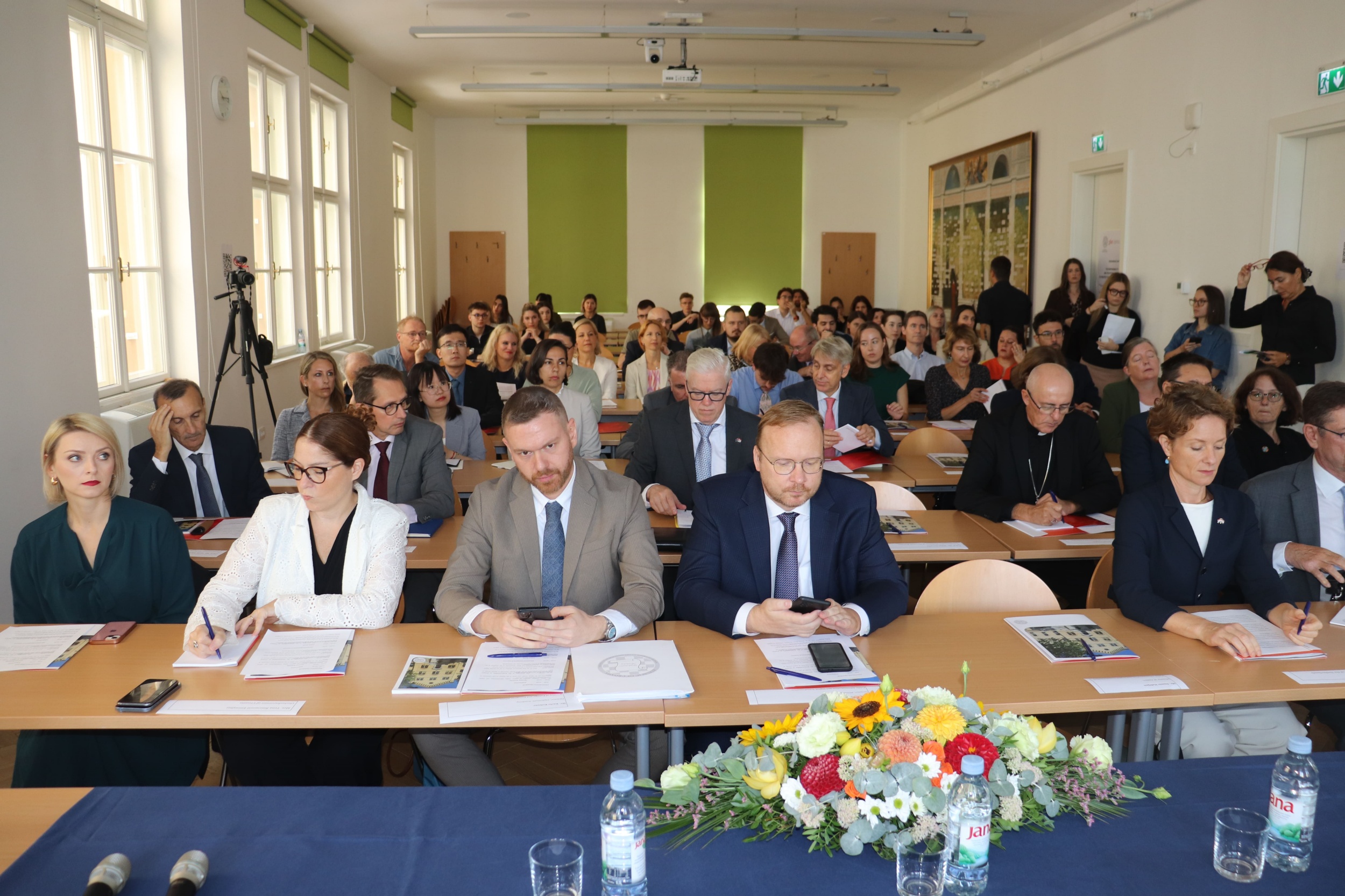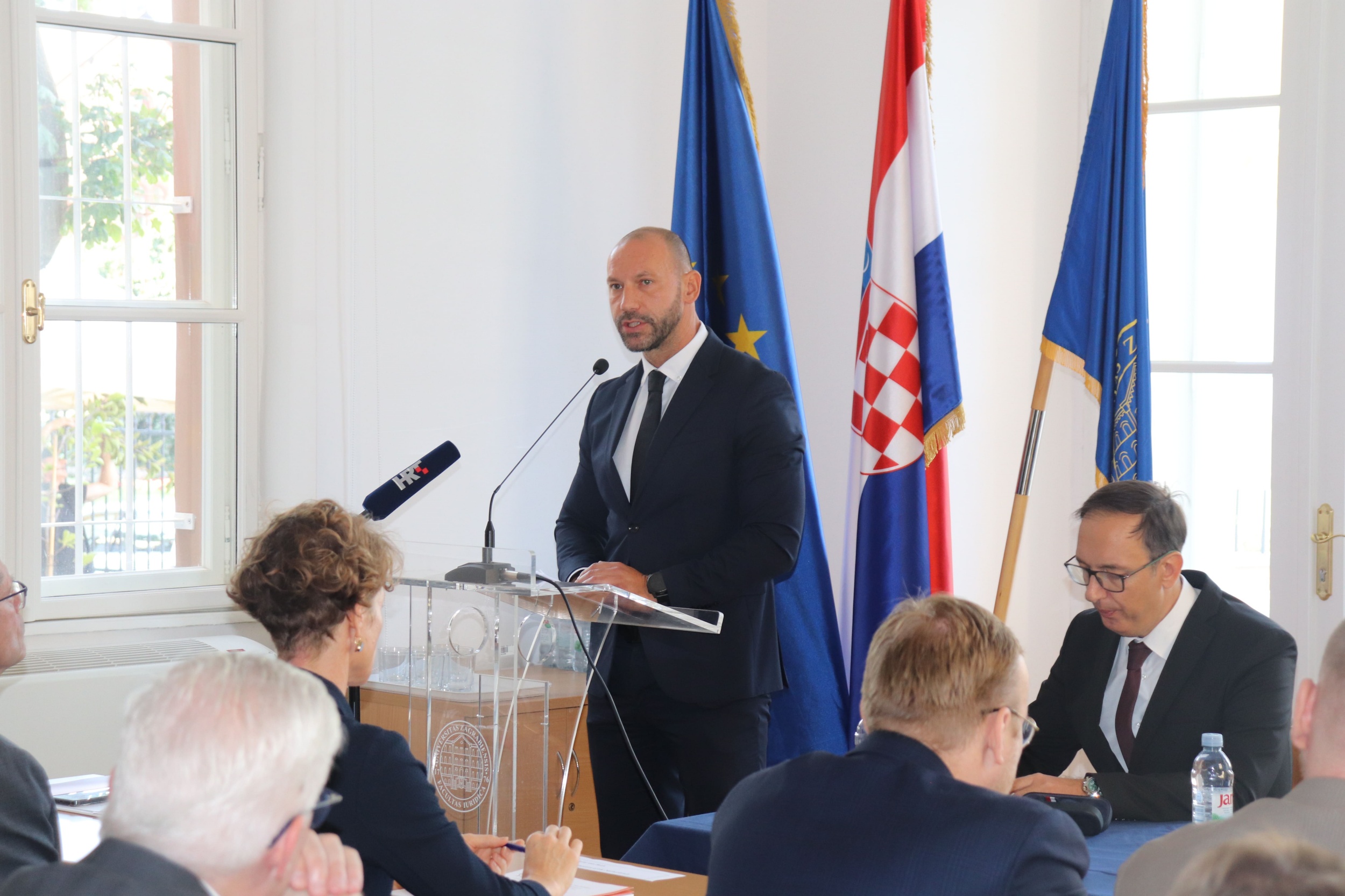The UN and its member states risk losing credibility, while Croatia stands out as a leading country in initiating the prosecution of war crimes, these were among the key messages of the international conference on the principle of the responsibility of states and the international community to protect populations from atrocity crimes (R2P – “The Responsibility of States and the International Community to Protect Populations from Atrocity Crimes”). The conference was organised by the Faculty of Law, University of Zagreb, together with its partner, the Inter University Centre Dubrovnik (IUC). With regard to war crimes, genocide, ethnic cleansing, and crimes against humanity, the R2P principle, adopted in 2005, is particularly relevant amidst the ongoing conflicts in Gaza and Ukraine.
Domestic and international scholars, representatives of the UN, government ministries (including the Minister of Justice, Public Administration and Digital Transformation, Damir Habijan), members of the diplomatic corps and the Croatian Parliament, as well as institutions for the protection of human rights, gathered to mark the 20th anniversary of the adoption of the World Summit’s Outcome Document on this principle, drafted in response to the failures of the international community to prevent atrocity crimes. Prof. Ivan Šimonović, member of the UN Human Rights Committee, underscored the importance of implementing the principle.
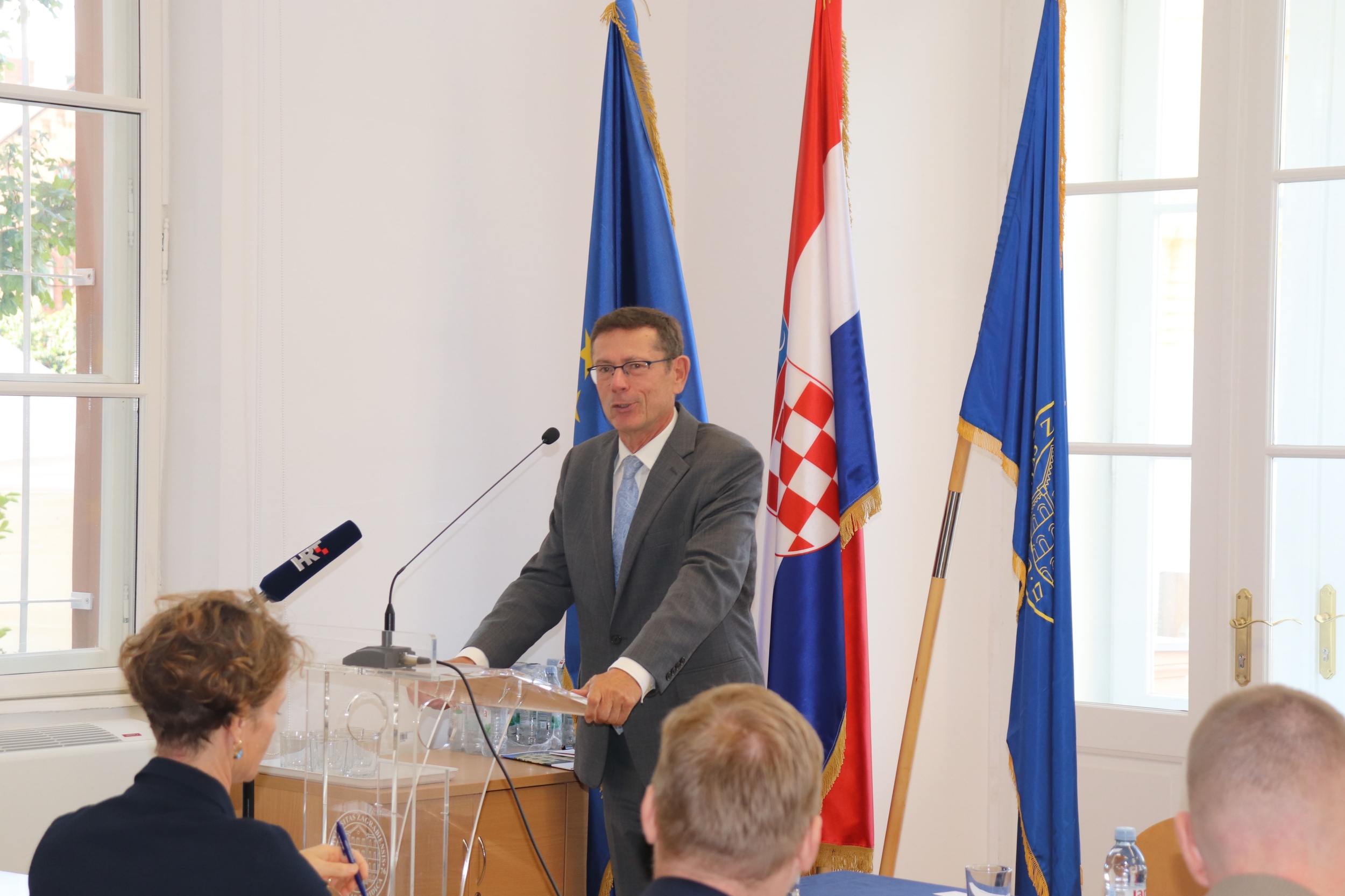
“We are facing more conflicts than at any time since the Second World War, and these conflicts are claiming more victims than ever before. Crimes against humanity are becoming increasingly frequent, and the future of the R2P principle depends on whether it will be implemented more effectively or left to become marginalised. The UN and its member states risk losing credibility if they fail to take concrete steps towards its implementation, and the divisions within the UN Security Council, especially among its permanent members, diminish the chances of a timely and decisive response to atrocity crimes and to providing protection. Until the current obstacles are overcome, it is of the utmost importance to focus on crime prevention—both structural and operational—and to draw upon other UN bodies to compensate for the inactivity of the Security Council,” emphasised Šimonović.
“Croatia strongly supports the strengthening of national strategies for the prevention of crimes and the development of human rights institutions with the aim of preventing atrocities. We are proud of our contribution in this area, including participation in the Peacebuilding Commission and the Group of Friends of R2P. We were the initiator and one of the first countries to adopt the second UN General Assembly Resolution on R2P, and initiatives and activities within the UN have significantly contributed to the dissemination and consolidation of the principle within Croatia itself. Because of its recent wartime past, Croatia, as a leading country in initiating the prosecution of war crimes, stands as an example for all states confronting crimes against humanity,” stated Minister Habijan, speaking ahead of the panel “The Principle of the Responsibility to Protect Populations from Atrocity Crimes (R2P)”, which also featured Prof. Ivan Šimonović and H.E. Charlotte van Baak, Ambassador of the Kingdom of the Netherlands to the Republic of Croatia.
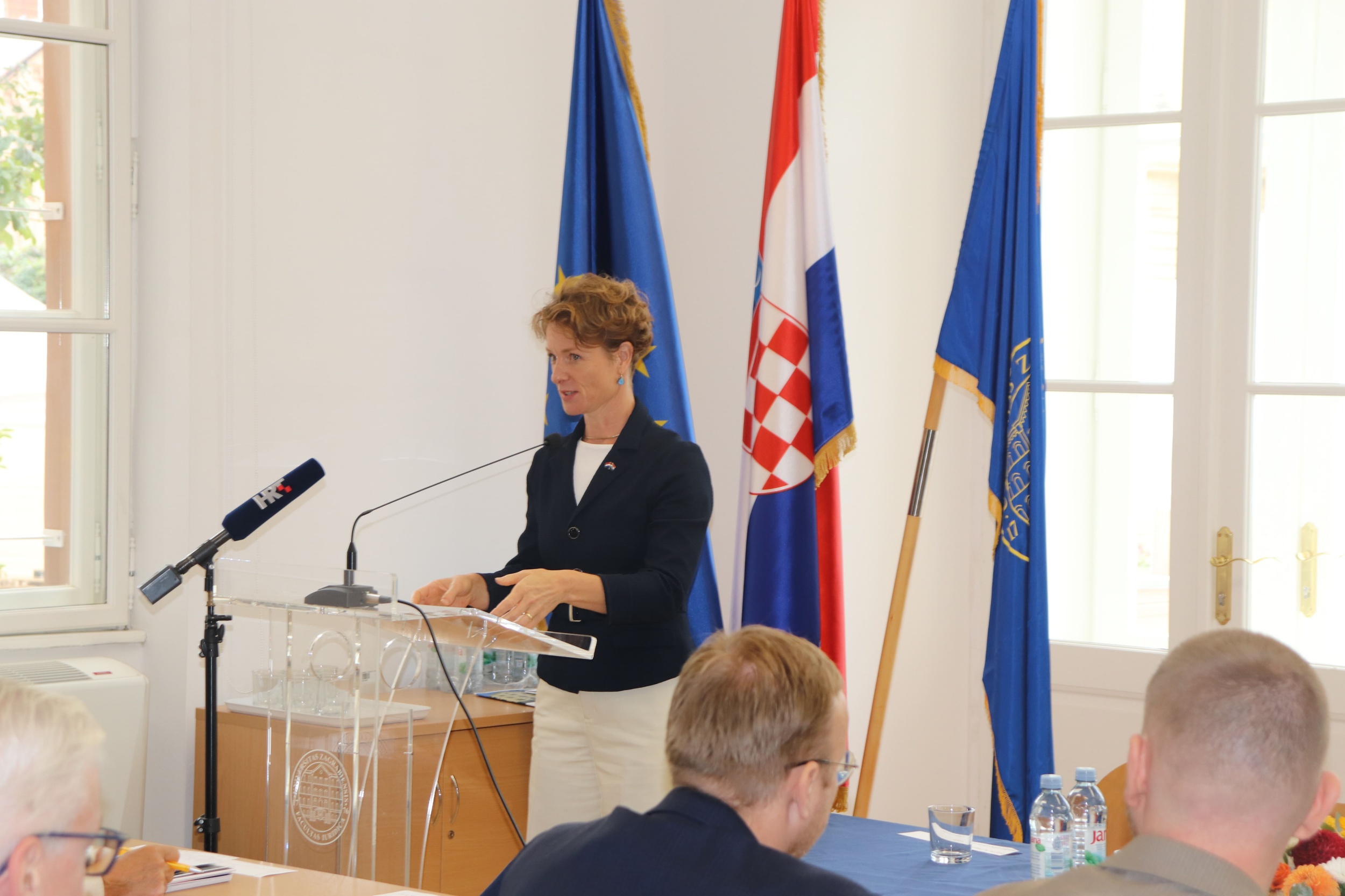
“Today’s world looks dramatically different from twenty years ago, when R2P was unanimously adopted. We now live in an increasingly unstable global order in which the prevention and prosecution of atrocity crimes remain a challenge—and those challenges are greater and more complex than ever before. Preventing crimes against humanity is a shared responsibility for all of us. The fact that R2P has not prevented crimes over the past twenty years must not discourage us. On the contrary, it should be a call to action—to learn from the past and to respond earlier and more effectively to the early warning signs,” stated Ambassador H.E. Charlotte van Baak.
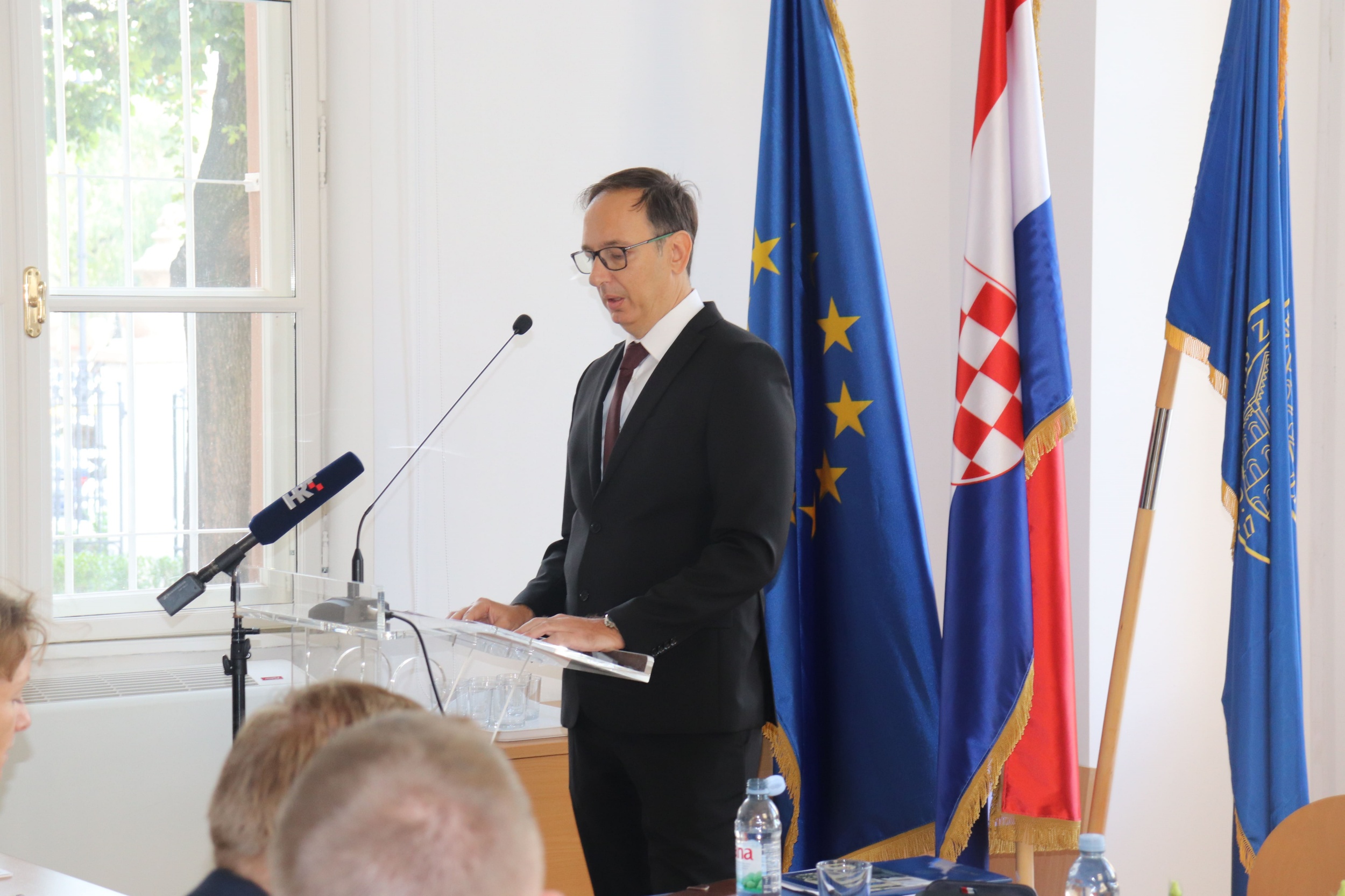
Vice-Dean of the Faculty of Law, Assoc. Prof. Mario Krešić highlighted that the inclusion of the R2P principle in the World Summit’s Outcome Document fundamentally transformed the international order.
“By incorporating R2P into official UN doctrine, the 2005 Summit sent a clear message that grave violations of human rights may require a collective response by the international community, thereby strengthening global commitment to the protection of civilians. To maintain the vitality of this crucial principle, today we will discuss what needs to be done to ensure its continued relevance, explore how states can reinforce it internationally, and examine how national policies can advance human rights and strengthen resilience to atrocity crimes—threats from which no state is immune,” concluded Krešić.
The programme also featured the following panellists: Prof. Davorin Lapaš (Faculty of Law, University of Zagreb), Asst. Prof. Petra Perišić (Faculty of Law, University of Rijeka), Asst. Prof. Rutvica Rusan Novokmet (Faculty of Law, University of Zagreb), Assoc. Prof. Sunčana Roksandić (Faculty of Law, University of Zagreb), Prof. Anja Matwijkiw (Indiana University), presidential arts and humanities fellow, and Asst. Prof. Jakob v. H. Holtermann (Faculty of Law, University of Copenhagen).
The conference was further honoured by the presence of distinguished guests: H.E. Richard Mason Rodgers, Ambassador of Australia; H.E. William Jean M. de Baets, Ambassador of Belgium; H.E. Milan Hovorka, Ambassador of the Czech Republic; H.E. Archbishop Msgr. Giorgio Lingua, Apostolic Nuncio of the Holy See; H.E. Wendy Dorman-Smith, Ambassador of Ireland; H.E. Paolo Trichilo, Ambassador of Italy; H.E. Hana Kováčová, Ambassador of Slovakia; H.E. Maria Manuel Quintela Batista Durão, Ambassador of Portugal; Weronika-Leokadia Staniec-Porczyk, Deputy Head of Mission of Poland; Jerónimo Fuentes Candau, Deputy Head of Mission of Spain; as well as representatives of the embassies of China, Hungary, Slovenia, Sweden, and the Delegation of the European Commission in Croatia.
